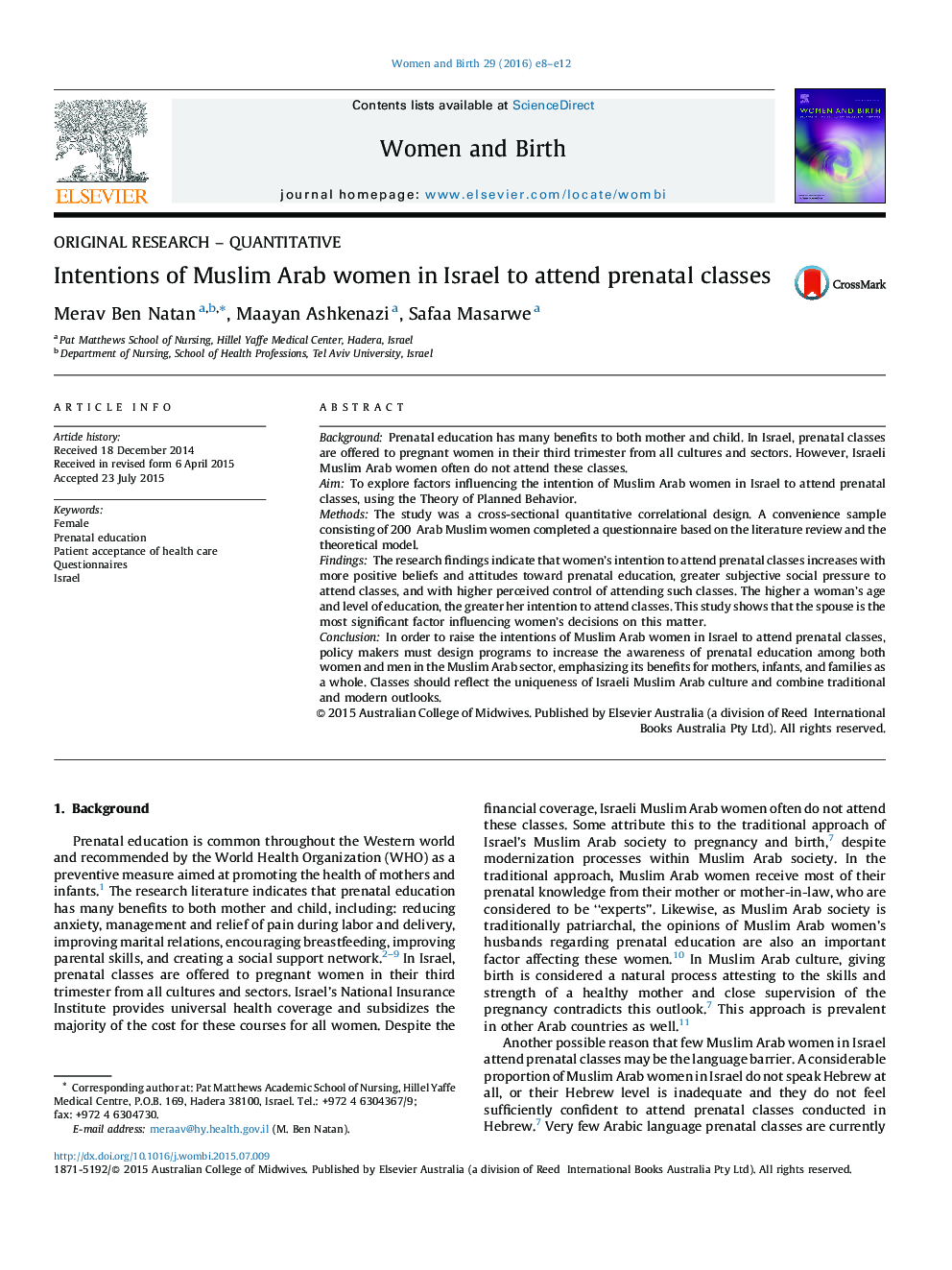| Article ID | Journal | Published Year | Pages | File Type |
|---|---|---|---|---|
| 2636447 | Women and Birth | 2016 | 5 Pages |
BackgroundPrenatal education has many benefits to both mother and child. In Israel, prenatal classes are offered to pregnant women in their third trimester from all cultures and sectors. However, Israeli Muslim Arab women often do not attend these classes.AimTo explore factors influencing the intention of Muslim Arab women in Israel to attend prenatal classes, using the Theory of Planned Behavior.MethodsThe study was a cross-sectional quantitative correlational design. A convenience sample consisting of 200 Arab Muslim women completed a questionnaire based on the literature review and the theoretical model.FindingsThe research findings indicate that women's intention to attend prenatal classes increases with more positive beliefs and attitudes toward prenatal education, greater subjective social pressure to attend classes, and with higher perceived control of attending such classes. The higher a woman's age and level of education, the greater her intention to attend classes. This study shows that the spouse is the most significant factor influencing women's decisions on this matter.ConclusionIn order to raise the intentions of Muslim Arab women in Israel to attend prenatal classes, policy makers must design programs to increase the awareness of prenatal education among both women and men in the Muslim Arab sector, emphasizing its benefits for mothers, infants, and families as a whole. Classes should reflect the uniqueness of Israeli Muslim Arab culture and combine traditional and modern outlooks.
